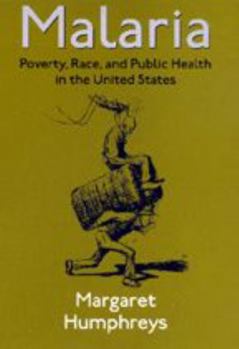Malaria: Poverty, Race, and Public Health in the United States
This is the story of a war against a disease that we can never win but must continue to fight.
In Malaria: Poverty, Race, and Public Health in the United States, Margaret Humphreys presents the first book-length account of the parasitic, insect-borne disease that has infected millions and influenced settlement patterns, economic development, and the quality of life at every level of American society, especially in the south.
Humphreys approaches malaria from three perspectives: the parasite's biological history, the medical response to it, and the patient's experience of the disease. It addresses numerous questions including how the parasite thrives and eventually becomes vulnerable, how professionals came to know about the parasite and learned how to fight them, and how people view the disease and came to the point where they could understand and support the struggle against it.
In addition Malaria: Poverty, Race, and Public Health in the United States argues that malaria control was central to the evolution of local and federal intervention in public health, and demonstrates the complex interaction between poverty, race, and geography in determining the fate of malaria.
Related Subjects
Administration & Medicine Economics Americas Communicable Diseases Health Policy Historical Study & Educational Resources Infectious Disease Internal Medicine Medical Medical Books Medicine Politics & Government Public Affairs & Policy Public Health Social History Social Services & Welfare




